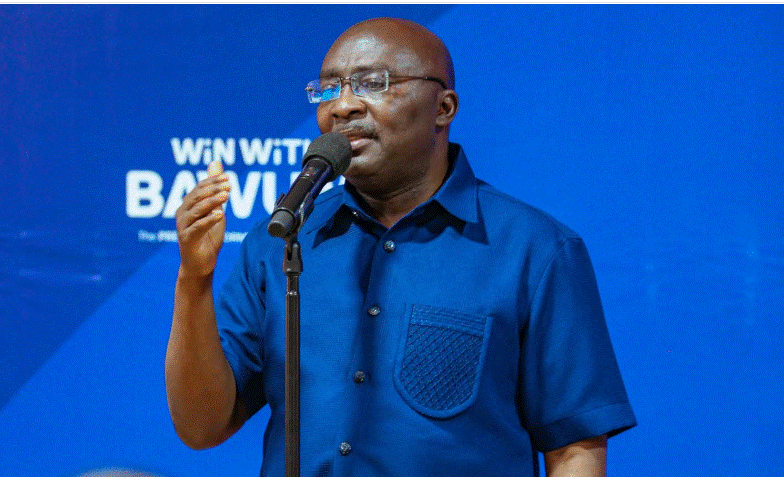
By Juliet ETEFE ([email protected])
President John Mahama has urged all stakeholders to scale up efforts in addressing the rising incidence of systemic fraud and corruption, which he says continues to undermine national development and weaken public trust in state institutions.
The President – in an address read on his behalf by Economic Advisor to the President Seth Terkper at the 3rd National Fraud Conference – said corruption remains one of the most significant threats to economic progress, investor confidence and equitable access to public services.
The conference, organised by the Association of Certified Fraud Examiners (ACFE) Ghana Chapter, was held on the theme ‘Empowering Ethical Leadership and Accountability: The Pathway to a Corruption-Free Society’.

Mr. Terkper noted that while Ghana has made progress in strengthening institutions and digitalising public systems, several recent cases highlight persistent gaps in internal controls, procurement processes and accountability frameworks.
He cited payroll manipulation at the National Service Secretariat, procurement-related irregularities at the National Signals Bureau and diversion of funds at the National Buffer Stock Company as clear evidence of systemic weaknesses.
Such practices, he stressed, hinder economic progress, noting that “they hinder economic development, discourage foreign investment and perpetuate poverty among our people”.
He reiterated: “When public resources are diverted or misused, it is the ordinary Ghanaian who bears the brunt; access to quality healthcare, education and social services becomes compromised”.
The President also referenced the wider economic and environmental impact of illegal mining (galamsey), describing it as a corruption-linked activity that has caused extensive ecological damage while depriving the state of legitimate mining revenues.
According to him, fraud and corruption distort resource allocation, inflate the cost of public projects, discourage investment and deepen inequality.

To this end, he said, steps are being taken to strengthen the anti-corruption architecture through establishing the Office of the Special Prosecutor and passage of the Right to Information Act, intended to reduce opportunities for corrupt practices while enhancing transparency and traceability.
However, he stressed that legal reforms alone are insufficient while calling for stronger ethical leadership, enhanced institutional collaboration, improved whistleblower protections and a culture wherein honesty and accountability become national norms.
He urged the ACFE Ghana Chapter to take a more visible role in shaping public discourse and supporting investigations, forensic audits and preventive systems.
“The fight against corruption must be a collective endeavour,” the President affirmed, adding that government remains committed to providing the enabling environment, resources and partnerships needed to protect public finances and uphold integrity across all sectors.

Ethical discipline
ACFE Ghana Chapter President, Rebecca Lomo, stressed that the fight against fraud requires stronger ethical discipline across professional sectors – noting that corruption is increasingly visible in procurement processes, financial reporting, tax administration and routine public service delivery.
She emphasised that, beyond legislation, Ghana needs professionals who are willing to uphold standards even when under pressure to compromise.
Ms. Lomo described corruption as a “real economic crime” with tangible consequences for citizens, pointing out that funds lost to fraudulent practices could have delivered essential public services.
She urged government to remain consistent with anti-corruption reforms and called for stronger internal systems, wider deployment of AI-driven monitoring tools, increased civic education and tighter procurement oversight.
Ghana, she cautioned, is “not winning the fight yet” but can make significant gains if institutions enforce controls more rigorously and professionals act with integrity.

Corporate leadership
For his part, Atta Yeboah Gyan, Deputy Managing Director-Fidelity Bank Ghana, stressed that corporate leaders must lead with integrity, transparency and accountability.
He urged executives to embed ethics into their organisations, empower whistleblowers and set the “tone at the top”, warning that the cost of unethical leadership – lost trust, credibility and investor confidence – far outweighs the effort required to uphold ethical standards.
ACFE
The Association of Certified Fraud Examiners (ACFE) Ghana Chapter is a leading force in the fight against fraud, promoting awareness, education and professional excellence in fraud prevention and detection. As the local chapter of the world’s largest anti-fraud organisation, ACFE Ghana unites professionals across industries and government to provide innovative anti-fraud training and share best practices.
The post Mahama demands end to systemic fraud and corruption appeared first on The Business & Financial Times.
Read Full Story

















Facebook
Twitter
Pinterest
Instagram
Google+
YouTube
LinkedIn
RSS